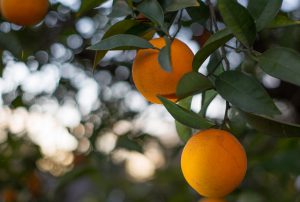Organic production improves soil health in Spanish citrus orchards
 Photo credit: Robert Cous-Baker
Photo credit: Robert Cous-Baker
A recent study published in the journal Science of the Total Environment compared soil quality in conventional and organic citrus orchards in Eastern Spain, the oldest citrus-growing region in Europe. Orchards were either watered with irrigation water or by flooding. The study assessed the physical and chemical characteristics of the soils. Physical characteristics measured included the amount of organic matter—one of the most important components of a healthy soil—and aggregate stability—the ability of soil to maintain structure so that air and water can reach plant roots. Chemical characteristics measured included pH and nitrogen level, a nutrient essential to plant growth, as indicated by carbon to nitrogen ratios. Results from the study showed that soils from organic citrus orchards had higher levels of organic matter and better aggregate stability than soils from conventional orchards. Chemical characteristics such as pH and nitrogen level did not vary among conventional and organic orchards under similar watering regimes. “Organic management practices were found to be beneficial for soil quality, compared to conventional management for soils with comparable textures and applied irrigation water,” the authors concluded.

